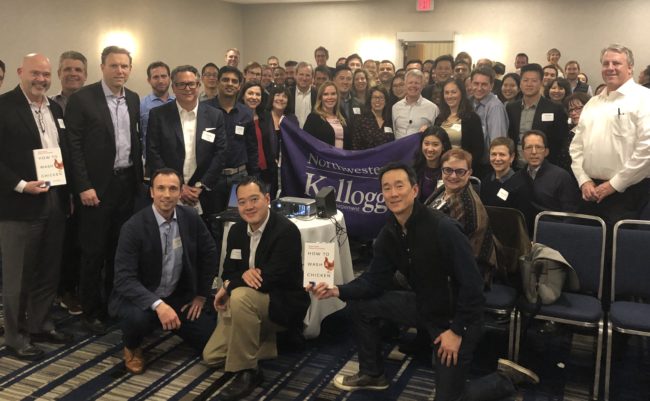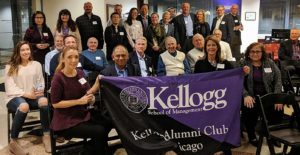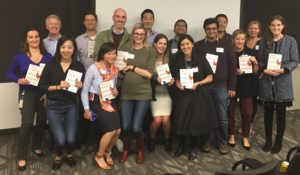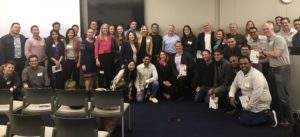
Learning from a Book Tour
Over the past few months I’ve been traveling around talking about my new book, How to Wash a Chicken – Mastering the Business Presentation. I’ve hit quite a few cities along the way: Los Angeles, Houston, Boston, Toronto, Chicago and others. This week I’ll be in Atlanta and New York. The events have been great fun. In many cases I’ve been speaking to Kellogg alumni groups, a positive and supportive audience.
The experience has reinforced some of the things I talk about in my book and highlighted a few other learnings.
1. Always arrive early
In my book, I recommend that you always get to an event well ahead of time. I’ve done this on my trip, and the extra time has saved me on several occasions. In Toronto, for example, hooking up my computer was a huge challenge. It took about an hour, and just when we were about to give up someone on the staff figured it out. I wasn’t too concerned as we worked on it because we had lots of time before the program. In Los Angeles I had a variety of issues to address (see #4), but things worked out.
2. Practice
I’ve modified my talk a bit over the months, reworking the flow and examples. Still, the material hasn’t changed all that much. Each time I give the talk, however, it seems to get smoother. I know how the timing will work out. I understand the transitions.
It all reinforces that practice is important. The first time through a presentation – any presentation – is a bit rough. You aren’t sure about the pacing and stories. You are nervous about the jokes. A presentation, like many things in life, gets better with practice.
3. Have a backup plan
I am a big champion of backups, and on my trips I’ve had to go to Plan B quite frequently. In Houston, I couldn’t get the room sound system to work, so I used the portable speakers I carry with me. In Boston my clicker gave out so I had to put in my backup batteries. I didn’t bring my speakers to Toronto and regretted the decision.
Having a backup system is a clear best practice. Things will rarely work as expected, so you have to be ready for the inevitable failures.
4. Don’t Leave Things in the Car
My trip to Los Angeles provided a rather powerful lesson. I had a little time before my presentation, so I left my things in my rental car on a busy street in Venice and walked along the ocean for 20 minutes. When I got back, the car window was smashed and my work bag was gone: my computer, passport, class notes and all the rest.
This was an exciting moment, because my presentation was in 90 minutes. Only my primary computer was gone and I had nothing to present. It was a large group, too – more than 100 people.
Fortunately, I had a backup computer with me (see #3). I used my email to find an old version of my presentation, and had my former student Abe Lubetkin send the link to an old file he had worked on with me. I patched things together and the presentation went well.
The learning is clear: keep you things with you, or at least put everything out of sight.
5. Don’t worry about being nervous.
As I note in my book, I’ve done over 5,000 presentations. I’ve given my talk on presenting more than twenty times. I’ve received tons of feedback over the years, and the comments change only slightly.
Still, I’m always nervous. I wonder if the technology will work and if I will get the timing right. And then I start thinking that I’m giving a presentation about giving a presentation, and that makes everything more intense.
The reality is that being nervous is how you should feel when presenting. It means you are focused. It means you care.



Wow. Hair-raising, especially the theft. Tech problems are ubiquitous. Hope you’ve had great sales.
Very sound advice although I need to learn more about backup speakers. I’m going to pass on to my students.